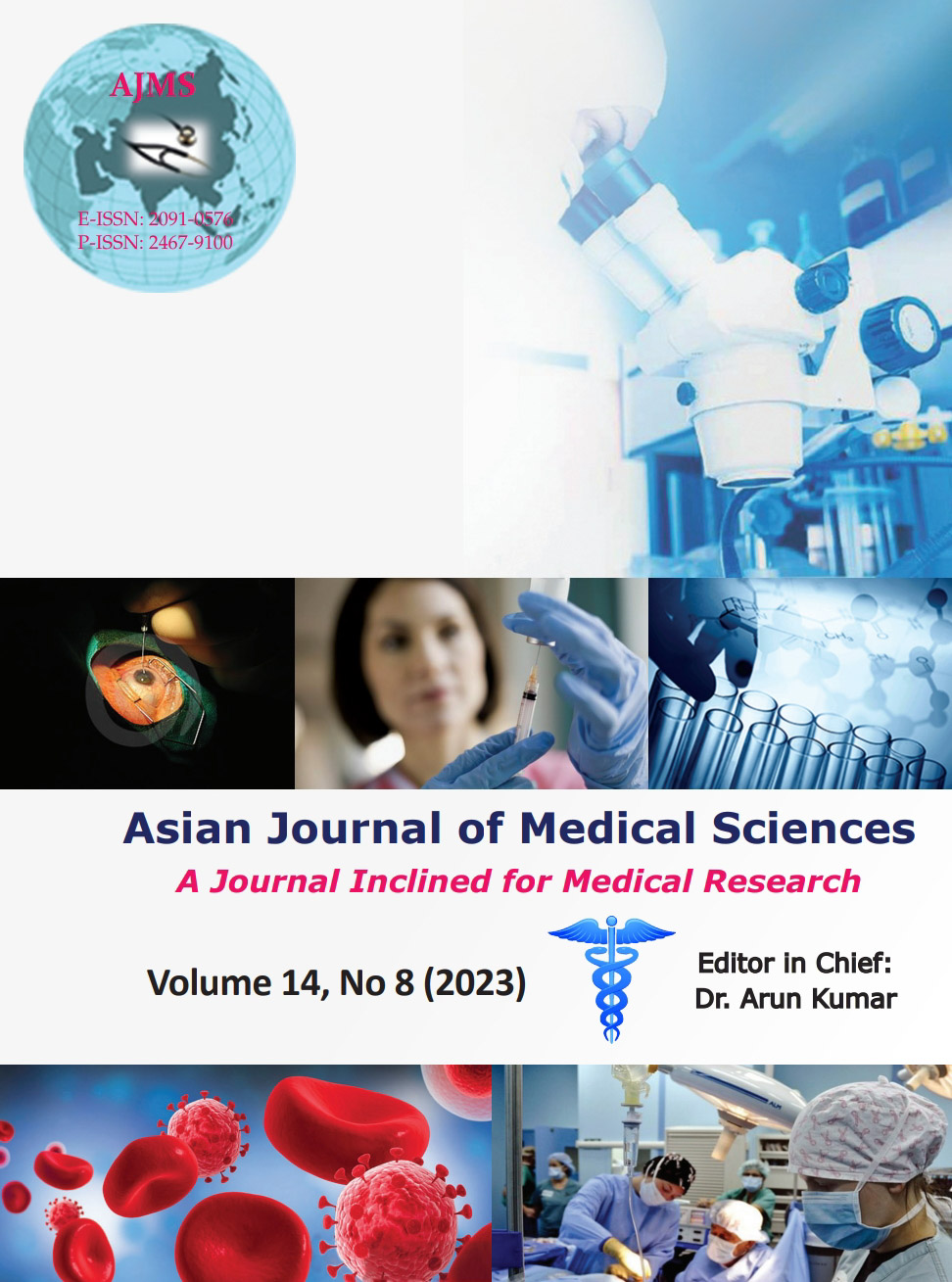Prognostic value of plasma interleukin 6 levels in severe traumatic brain injury
Keywords:
Glasgow outcome scale; Interleukin-6; Traumatic brain injuryAbstract
Background: Traumatic brain injury (TBI) results in a significant morbidity and mortality. Several inflammatory mediators are released after TBI. Some studies have shown inconclusive association between interleukin-6 (IL-6) and outcome following TBI.
Aims and Objectives: The aim of the present study was to investigate the role of plasma IL-6 levels as a possible prognostic marker in patients with severe TBI.
Materials and Methods: A total of 47 male patients with isolated severe TBI were included in a prospective observational study. Plasma IL-6 levels was measured at admission, 24 h and 48 h. Association of IL-6 levels with mortality and functional outcome were studied. The Glasgow outcome scale was used to assess functional outcomes.
Results: Mean age was 44.4 years. Overall mortality of 42.6% was noted. Higher mortality was noted for patients beyond 50 years of age. Mean IL-6 levels at the time of admission was 306.285 pg/mL and 167.830 pg/mL at 24 h while 99.033 pg/mL at 48 h of admission Mean IL 6 levels were higher in patients with lower Glasgow coma scale (GCS), with a significant statistical association of GCS with IL-6 levels at admission and 24 h (P<0.001). 38 (80.85%) patients underwent surgical intervention. No statistical correlation was noted between IL-6 levels and mode of management. Significant IL-6 levels were seen in patients with worse clinical course at admission, 24 h and 48 h (P<0.0001). A level of 78 pg/mL was the appropriate cutoff to differentiate patient mortality as per receiver operating characteristic curve with Sensitivity of 1 and specificity of 0.8.
Conclusion: IL-6 plasma concentrations are likely to be a useful parameter for assessing prognosis in severe TBI.
Downloads
Downloads
Published
How to Cite
Issue
Section
License
Copyright (c) 2023 Asian Journal of Medical Sciences

This work is licensed under a Creative Commons Attribution-NonCommercial 4.0 International License.
Authors who publish with this journal agree to the following terms:
- The journal holds copyright and publishes the work under a Creative Commons CC-BY-NC license that permits use, distribution and reprduction in any medium, provided the original work is properly cited and is not used for commercial purposes. The journal should be recognised as the original publisher of this work.
- Authors are able to enter into separate, additional contractual arrangements for the non-exclusive distribution of the journal's published version of the work (e.g., post it to an institutional repository or publish it in a book), with an acknowledgement of its initial publication in this journal.
- Authors are permitted and encouraged to post their work online (e.g., in institutional repositories or on their website) prior to and during the submission process, as it can lead to productive exchanges, as well as earlier and greater citation of published work (See The Effect of Open Access).




